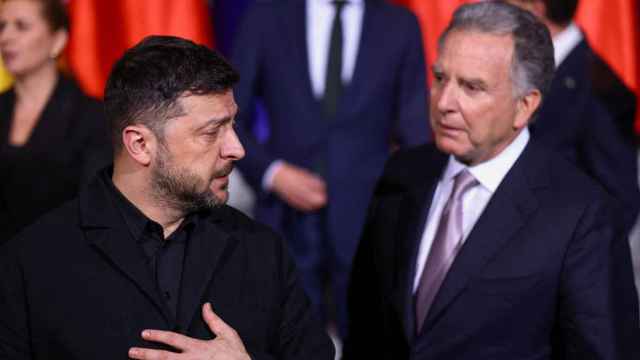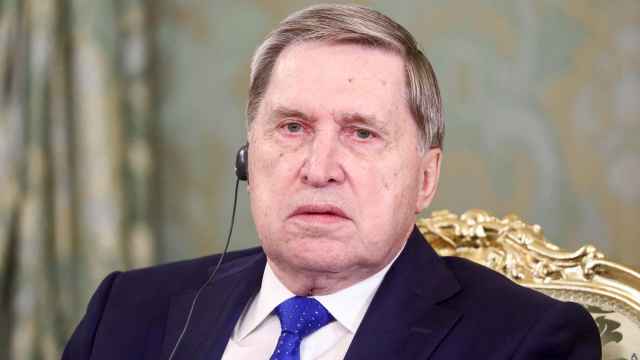Russia, which could buy more than $7 billion worth of Belarussian assets as it helps Minsk tackle a currency crisis, expressed opposition Saturday to tougher European sanctions against Belarussian firms.
The EU has already imposed a travel ban against President Alexander Lukashenko and about 150 of his close political associates following his crackdown on political opponents after a disputed presidential election last December.
Foreign ministers of France, Germany and Poland said Friday that the EU planned further sanctions targeting Lukashenko and companies that finance his government. They mentioned no names, but large state-owned firms are the likely targets.
Foreign Minister Sergei Lavrov said that would be counterproductive.
"We believe such steps will not help in achieving the results we are talking about," Lavrov said Saturday at a televised news conference with his Polish and German counterparts in Kaliningrad.
"We are convinced that under any circumstances, involvement rather than isolation will facilitate market and democratic reforms" in Belarus, Lavrov said.
German Foreign Minister Guido Westerwelle said the EU did not want to isolate Belarus. "We want to punish those responsible for [opposition] prison verdicts. We are talking about sanctions, not a boycott or embargo," he said.
Faced with a deepening currency crisis and Western criticism over the clampdown on opposition, Lukashenko has bowed to Russian pressure and tentatively agreed to sell some of the country's most valuable firms in exchange for financial support.
Finance Minister Alexei Kudrin said Thursday that Belarus could raise at least $7.5 billion from privatization in the next two to three years to supplement a proposed $3.5 billion bailout loan backed by Moscow.
Belarussian Prime Minister Mikhail Myasnikovich said late Friday that Minsk could sell its stake in the country's gas pipeline network to Russia for $2.5 billion and to unify the countries' ruble exchange rates once it received a bailout loan from Moscow, state news agency Belta reported.
The deal would give Gazprom complete control over Belarus' pipeline network, which tranships Russian gas to Europe.
Gazprom paid the same sum for the 50 percent stake in Beltransgaz that it acquired through a series of purchases between 2007 and 2010.
Russia is also eyeing Belarus' oil refineries, its main mobile phone provider and its potash production complex. Some of these firms may become targets of EU sanctions, which is likely to affect their value.
French Foreign Minister Alain Juppe said Friday that EU foreign ministers would consider further sanctions at a meeting in Brussels on Monday.
Also Friday, a Minsk court handed down unexpectedly light sentences on two men who ran against Lukashenko in the election.
A Message from The Moscow Times:
Dear readers,
We are facing unprecedented challenges. Russia's Prosecutor General's Office has designated The Moscow Times as an "undesirable" organization, criminalizing our work and putting our staff at risk of prosecution. This follows our earlier unjust labeling as a "foreign agent."
These actions are direct attempts to silence independent journalism in Russia. The authorities claim our work "discredits the decisions of the Russian leadership." We see things differently: we strive to provide accurate, unbiased reporting on Russia.
We, the journalists of The Moscow Times, refuse to be silenced. But to continue our work, we need your help.
Your support, no matter how small, makes a world of difference. If you can, please support us monthly starting from just $2. It's quick to set up, and every contribution makes a significant impact.
By supporting The Moscow Times, you're defending open, independent journalism in the face of repression. Thank you for standing with us.
Remind me later.





